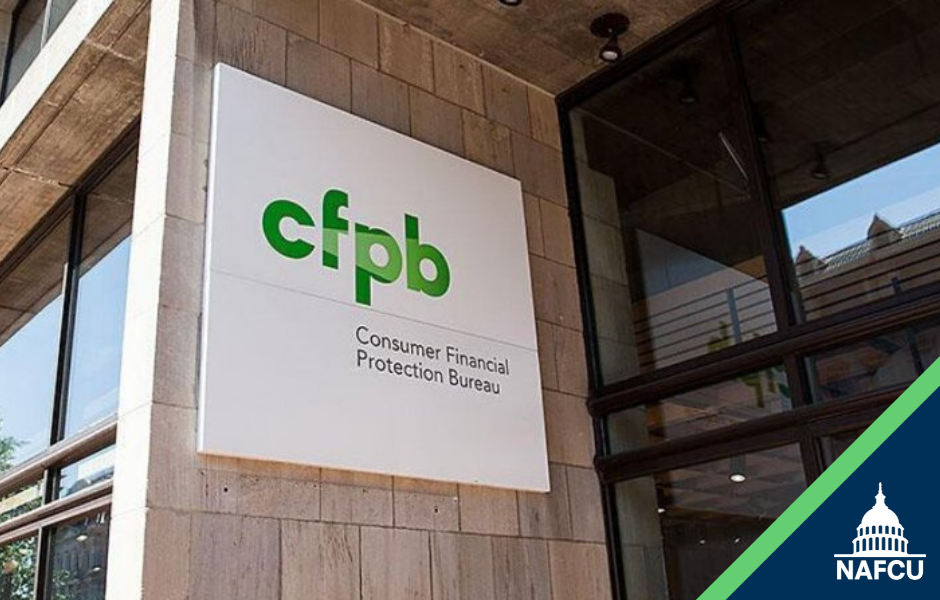Newsroom
CFPB issues guidance on UDAAP’s ‘abusive’ definition
 The CFPB Monday issued a policy statement related to how it defines “abusive” under its unfair, deceptive, or abusive acts or practices (UDAAP) authority. NAFCU has called on the bureau to more clearly define this provision through an official rulemaking process.
The CFPB Monday issued a policy statement related to how it defines “abusive” under its unfair, deceptive, or abusive acts or practices (UDAAP) authority. NAFCU has called on the bureau to more clearly define this provision through an official rulemaking process.
“The statutory text of these two prohibitions can be summarized at a high level as: (1) obscuring important features of a product or service, or (2) leveraging certain circumstances to take an unreasonable advantage,” according to the statement.
The policy statement applies to all providers of consumer financial products, including credit unions, in an attempt to “help federal and state agencies hold companies accountable when they violate the law and take advantage of families,” CFPB Director Rohit Chopra said.
It details two abusiveness provisions, including one that materially interferes with the ability of a consumer to understand a term or condition of a consumer financial product or service, or takes unreasonable advantage of:
- a lack of understanding on the part of the consumer of the material risks, costs, or conditions of the product or service;
- the inability of the consumer to protect the interests of the consumer in selecting or using a consumer financial product or service; or
- the reasonable reliance by the consumer on a covered person to act in the interests of the consumer.
The statement is set to be published in the Federal Register; the public and stakeholders can provide comments to the bureau until July 3.
Since Congress granted the CFPB authority to enforce UDAAP under the Dodd-Frank Act, there have been several efforts to detail how the bureau enforces it, varying under each director. Last year, the bureau announced it would heighten its UDAAP scrutiny.
NAFCU has a UDAAP issue brief available to help credit unions understand the regulatory landscape and enforcement expectations under the bureau’s authority. The association will diligently review the policy statement and provide credit unions with updated resources to support compliance.
Share This
Related Resources
Add to Calendar 2024-06-26 14:00:00 2024-06-26 14:00:00 Gallagher Executive Compensation and Benefits Survey About the Webinar The webinar will share trends in executive pay increases, annual bonuses, and nonqualified benefit plans. Learn how to use the data charts as well as make this data actionable in order to improve your retention strategy. You’ll hear directly from the survey project manager on how to maximize the data points to gain a competitive edge in the market. Key findings on: Total compensation by asset size Nonqualified benefit plans Bonus targets and metrics Prerequisites Demographics Board expenses Watch On-Demand Web NAFCU digital@nafcu.org America/New_York public
Gallagher Executive Compensation and Benefits Survey
preferred partner
Gallagher
Webinar
AI in Action: Redefining Disaster Preparedness and Financial Security
Strategy
preferred partner
Allied Solutions
Blog Post
Add to Calendar 2024-06-21 09:00:00 2024-06-21 09:00:00 2024 Mid-Year Fraud Review Listen On: Key Takeaways: [01:16] Check fraud continues to be rampant across the country. Card fraud is affecting everyone. [04:31] Counterfeit US passport cards are just another new toolbox in the bad actors’ toolbox. [07:21] Blocking the fallback is the only way to defeat counterfeit cards. [11:17] The best way is constant education to your members in as many channels as you can. [13:02] We are still seeing overdraft lawsuits. Make sure the programming you have at your credit union matches what you have displayed for the members. Web NAFCU digital@nafcu.org America/New_York public
2024 Mid-Year Fraud Review
Strategy & Growth, Consumer Lending
preferred partner
Allied Solutions
Podcast
Get daily updates.
Subscribe to NAFCU today.
